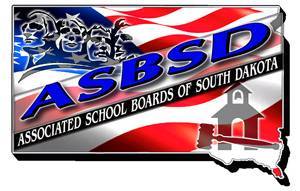The right to make local decisions on student activity participation remains in limbo.
House Education committee members took testimony on Wednesday (1/31) House Bill 1120, which permits students receiving alternative instruction be deemed academically eligible by complying with alternative instruction requirements and allowed to participate in activities sponsored by the SDHSAA or school districts, but deferred vote until Friday (2/2).
ASBSD is opposed to the bill.
“We need to let school boards carry out their local authority,” ASBSD Executive Director Wade Pogany testified in opposition of the bill, adding the bill means “local decisions no long become local.”
HB 1120 would impose a statewide policy on the participation requirements that need to be met by homeschool students in order to participate in South Dakota High School Activities Association and school district activities.
Rep. Sue Peterson, the bill’s prime sponsor, argued the change would “bring consistency and fairness” to participation requirements, which she believes are currently at a “vast discrepancy” in districts across the state.
A vast discrepancy could come in the academic requirements and expectations students who attend public school districts and homeschool students face while participating in the same activity.
“We let the kids play if they meet our (academic) expectations,” Wagner Community School District Superintendent Linda Foos said, adding that “extracurricular activities are a privilege.”
SDHSAA Executive Director Dan Swartos noted in his testimony the bill “could call into question” the association’s academic eligibility policies, as well.
Rep. Peterson rebuffed the notions of academic eligibility requirements not being met as the “three legal pathways” to education in the state – public school, private school and homeschool – should not “overlap” each other in their criterion.
Overlapping one education entity’s participation criteria ahead of another’s was precisely what HB 1120 would do, Pogany argued, as it “strips school boards” of the decision-making power the people of their district and community elected them to hold.
“School boards are held to a high level,” Pogany said. “(Through HB 1120) you remove the board from their elected responsibility.”
For updates on HB 1120, check the ASBSD Blog, Bill Tracker page and Twitter feed.
